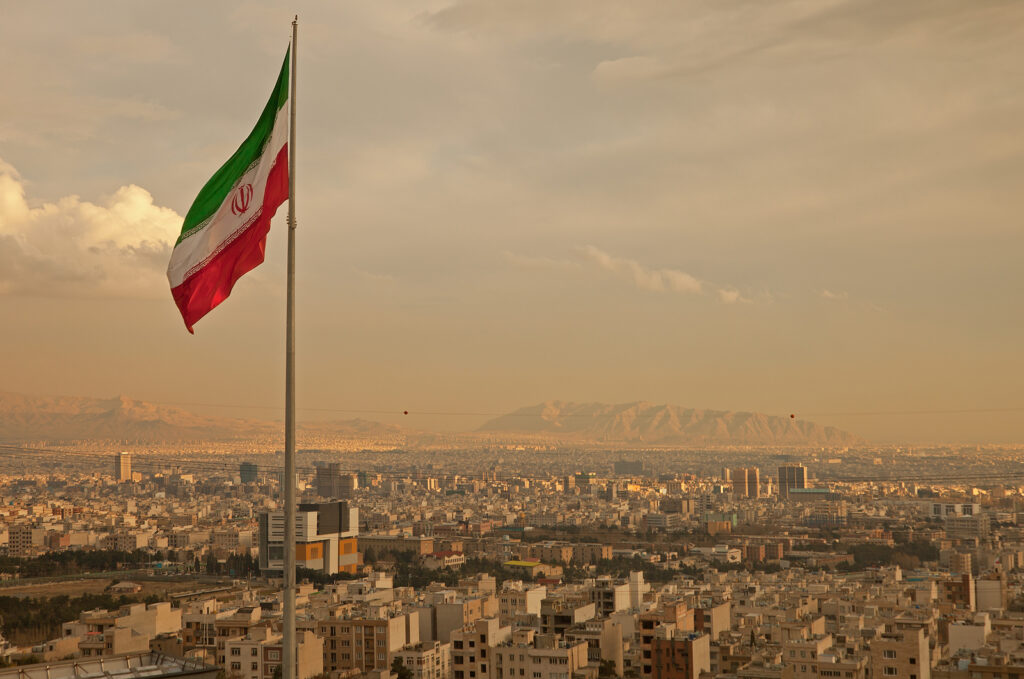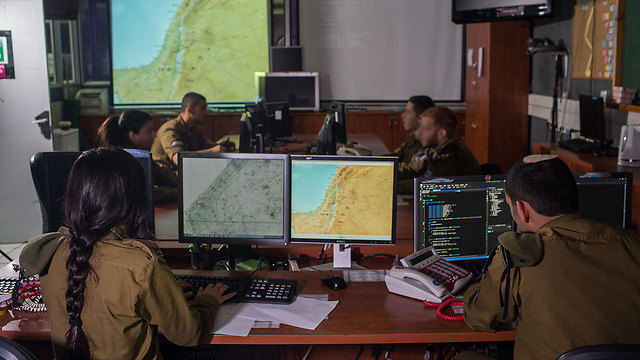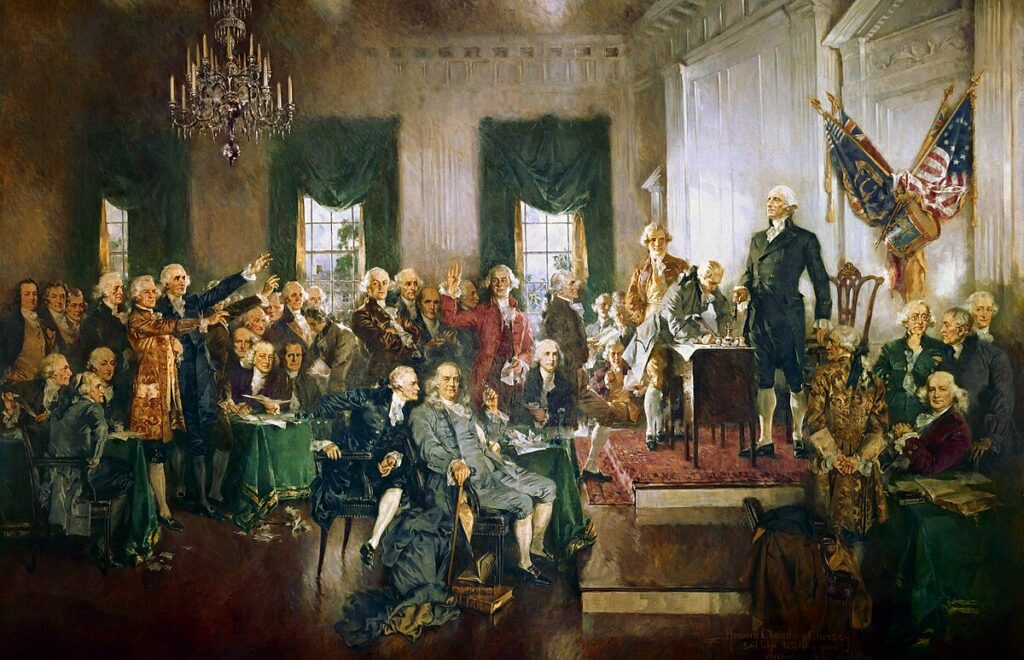In the hours and days immediately following Hamas’ murderous attack on October 7th, the air in Arab capitals was hardly one of jubilance, or any form of contentment for that matter. With 1200 dead Israeli civilians, hundreds of new graves dug on Mt. Herzl, and the IDF engaged in a desperate battle to re-establish deterrence on two fronts, the mood in most of the Arab world was one of shock, anxiety, and insecurity. Mighty Israel, “Fortress Israel” as the Arabs refer to it, boasting the region’s strongest army and most efficient intelligence service, had been caught by surprise and seemed to be unsure of itself and of its footing, appearing lethargic and indecisive despite staring down the barrels of Iranian-backed guns.
For the Arab and Sunni Muslim states, intelligence assessments and worldviews are treated more as an orthodoxy than as a fluid, interpretive dynamic, and known commodities are as valued as they are bankable. Therefore, a seemingly vulnerable Israel fighting for its very existence was a disturbance to their realities, unparalleled in scope by any geo-political event since the Arab Spring began cracking once-impermeable regimes, deposing Pharaohs, and prosecuting Leaders-for-Life. During those fraught and determining years, what we today call the “moderate camp” watched in horror as long-standing American allies were swept away without protest from Washington. Chaos ensued, lines in the sand were literally crossed, and Iranian interests began creeping up to their borders.
In their need for new, dependable, regional allies, the Sunni Arab states began re-examining Israel as an agent of protection and a guarantor of their security against Iranian aggression. These states recognized that Israeli methods of dealing with the long arm of the Iranian Revolutionary Guards had a long and successful track record, and they also realized that “Fortress Israel,” backed up against the Sea, had nowhere to go. It was the one constant in a new era of uncertainty.
An unintended gift, given to Prime Minister Netanyahu by the Obama administration, was the perfect set of circumstances for Israel to make peace with select Arab and Muslim states. And within a few years, the Abraham Accords were signed, joining Israel, the UAE, Bahrain, and Morocco in peace. What was new about these accords was that they were not the same peace deals signed by Israel and Jordan and Israel and Egypt, which are more marriages of convenience. Instead of a cold peace, it was instead an exchange of tourists, investments, hopes, and aspirations, shared along with the prized intelligence and security matters. There was nothing radical in making peace with Morocco or the United Arab Emirates, because for many reasons, these countries made very logical peace partners. Rather, what was radical was the newly minted norm that peace could be made with the Arab states without Palestinian conditionality, and with a progressive Saudi blessing signalling to the entire Muslim world that an institutional shift was underway.
Which brings us back to October 7th. Hamas, and by extension, Iran, made their intentions very clear in attacking Israel. Their goal, aside from the indiscriminate slaughter of Jews, was to bring back the perpetual state of war to Israel’s borders, and to goad the IDF into such an overwhelming response that the Arab Street would not be able to stomach more countries joining the Abraham Accords and normalizing relations with Israel.
But all is not lost. The opposite, in fact, is true. We have now entered a unique phase of the war, where the prospect of a pact of concord, at the very least, can not only be salvaged, but built upon. There are unique dynamics at play for Israeli diplomats and security chiefs which have never been afforded to them during Israel’s existence. True, the casual observer might point to Turkey’s President Recep Tayyip Erdogan, who chose the Arab Street over the gains made in their strategic relationship with Israel over the past year, or the Tunisian Parliament debating a law prohibiting any cultural, religious, or economic interactions with Israel on pain of criminal prosecution, and say the time is not ripe for an expansion of the Abraham Accords. It is also true that the scenes of devastation from Gaza, coupled with the misinformation campaigns and the waves of anti-Semitism masquerading as pro-Palestinian sentiment across Europe and North American, present serious challenges to Israeli emissaries. But one must only look at the recent meeting of Arab and Muslim leaders in Saudi Arabia to discuss the war in Gaza, where both new and potential allies decided not to sacrifice their relationships with Israel upon the altar of political expediency, and refused to be subject to radical groupthink and roll back relations. It was a strong signal to Israel that these countries are eager to deepen ties. This is as stark a contrast as there can be to the “Three No’s of Khartoum” in 1967, where the entire Muslim world rejected any form of peace with the Jewish State.
Israel must continue talks with the likes of Saudi Arabia, Oman, and other like-minded states, and reassure them that the Israel they felt the need to build bridges with will still be the same Israel after the war with Hamas. Just as Finland recognized the merits of a relationship with Israel based on its defense and technological prowess — purchasing the David’s Sling System shortly after its first real-world operational use against enemy rockets — the moderate Arab Bloc needs to be reminded that having Israel provide them with the means to protect themselves against the Iranian axis of terror is in their best interest.
There is also an opportunity for Israel to take this a step further and draw in states who have been actively belligerent toward it in the recent past. A country like Libya, fractured in two, played as a pawn by the great regional powers in their geo-strategic chess match, can re-establish and reposition itself by putting dialogue with Israel on the table. Libya remembers well the kind of benefits that come with being a player in the energy sector, and would have much to gain by aligning itself with Israel, Egypt, Greece, and Cyprus in their Eastern Mediterranean dispute over gas exploration with Turkey. Libya has also seen the prosperity brought by Israeli clean water solutions, agrotech, and medicine to the African nations to its south. The warlords in Tripoli and Benghazi and the spymasters in Glilot may not be intimates, but they are not strangers to each other either. The taboo on communicating with the Jewish State has long been broken, and the idea of working with “The Jews” is not a foreign concept to them either. While not the main driving force behind the Abraham Accords, the familiarity with indigenous Jewish communities in Bahrain and Morocco has undeniably been one of the binding factors of the Accords. There was once a prominent Jewish presence in Libya, and while they are technically “Judenrein” today, it is easier to sell the idea of relations with Israel to a population that is familiar with Jewish people and once benefited from Jews living amongst them. The indigenous Jews living throughout the Middle East have been instrumental in helping change the mindset of those Arab states who have made peace with Israel. Thousands of Jews still live in countries without relations with Israel, and the war with Hamas has left Jewish communities in places like Djerba and Tehran exposed, it being increasingly difficult for Israel to be directly involved in their wellbeing. However, new allies like the Emiratis and Moroccans have come forward to help with the protection and conservation of these communities, further demonstrating the advantages of new regional relations.
In the Middle East and North Africa, familiarity is often as valuable as hard currency. Today, the moderate Sunni Arab and Muslim states have realized that there is far more to gain from Israel, and their interest is to transact, not to commiserate. Regrettably, there will be no signing ceremony at the White House or in an opulent Saudi palace this calendar year, as the IDF still has much to do to destroy Hamas’ terror infrastructure in Gaza. But we should be taking advantage of having these states watching our every military move, as it will provide the incentive to expand the circle of peace with the moderate Sunni Bloc. A victory in Gaza is a victory for moderation, and a victory for moderation means peace for decades to come.
photo credit: Bigstock, Murrissey72








